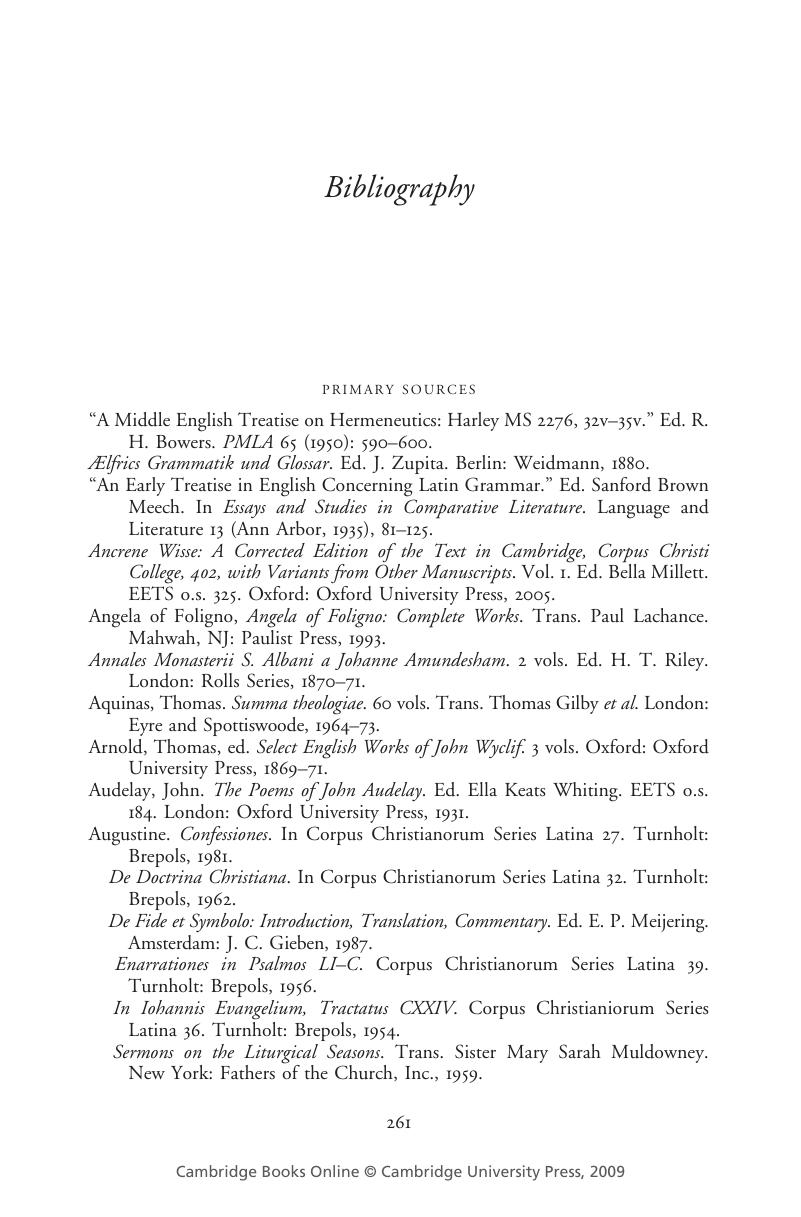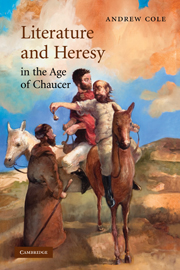Book contents
- Frontmatter
- Contents
- Preface
- Acknowledgments
- List of abbreviations
- PART I THE INVENTION OF HERESY
- PART II THE LATE FOURTEENTH CENTURY: CANONIZING WYCLIFFISM
- PART III THE EARLY FIFTEENTH CENTURY: HERETICS AND EUCHARISTS
- PART IV FEELING WYCLIFFITE
- PART V EPILOGUE
- Notes
- Bibliography
- Index of manuscripts cited
- General index
- CAMBRIDGE STUDIES IN MEDIEVAL LITERATURE
- References
Bibliography
Published online by Cambridge University Press: 22 September 2009
- Frontmatter
- Contents
- Preface
- Acknowledgments
- List of abbreviations
- PART I THE INVENTION OF HERESY
- PART II THE LATE FOURTEENTH CENTURY: CANONIZING WYCLIFFISM
- PART III THE EARLY FIFTEENTH CENTURY: HERETICS AND EUCHARISTS
- PART IV FEELING WYCLIFFITE
- PART V EPILOGUE
- Notes
- Bibliography
- Index of manuscripts cited
- General index
- CAMBRIDGE STUDIES IN MEDIEVAL LITERATURE
- References
Summary

- Type
- Chapter
- Information
- Literature and Heresy in the Age of Chaucer , pp. 261 - 285Publisher: Cambridge University PressPrint publication year: 2008



